Year 5
The English curriculum is built around the three interrelated strands of language, literature and literacy. Teaching and learning programs should balance and integrate all three strands. Together, the strands focus on developing students' knowledge, understanding and skills in listening, reading, viewing, speaking, writing and creating. Learning in English builds on concepts, skills and processes developed in earlier years, and teachers will revisit and strengthen these as needed.
In Years 5 and 6, students communicate with peers and teachers from other classes and schools, community members, and individuals and groups, in a range of face-to-face and online/virtual environments.
Students engage with a variety of texts for enjoyment. They listen to, read, view, interpret and evaluate spoken, written and multimodal texts in which the primary purpose is aesthetic, as well as texts designed to inform and persuade. These include various types of media texts including newspapers, film and digital texts, junior and early adolescent novels, poetry, non-fiction and dramatic performances.
The range of literary texts for Foundation to Year 10 comprises Australian literature, including the oral narrative traditions of Aboriginal and Torres Strait Islander Peoples, as well as the contemporary literature of these two cultural groups, and classic and contemporary world literature, including texts from and about Asia.
Literary texts that support and extend students in Years 5 and 6 as independent readers describe complex sequences, a range of non-stereotypical characters and elaborated events including flashbacks and shifts in time. These texts explore themes of interpersonal relationships and ethical dilemmas within real-world and fantasy settings. Informative texts supply technical and content information about a wide range of topics of interest as well as topics being studied in other areas of the curriculum. Text structures include chapters, headings and subheadings, tables of contents, indexes and glossaries. Language features include complex sentences, unfamiliar technical vocabulary, figurative language, and information presented in various types of graphics.
Students create a range of imaginative, informative and persuasive types of texts including narratives, procedures, performances, reports, reviews, explanations and discussions.
(source: www.australiancurriculum.edu.au)
Achievement Standard
Receptive modes (listening, reading and viewing)
By the end of Year 5, students explain how text structures assist in understanding the text. They understand how language features, images and vocabulary influence interpretations of characters, settings and events.
When reading, they encounter and decode unfamiliar words using phonic, grammatical, semantic and contextual knowledge. They analyse and explain literal and implied information from a variety of texts. They describe how events, characters and settings in texts are depicted and explain their own responses to them. They listen and ask questions to clarify content.
Productive modes (speaking, writing and creating)
Students use language features to show how ideas can be extended. They develop and explain a point of view about a text, selecting information, ideas and images from a range of resources.
Students create imaginative, informative and persuasive texts for different purposes and audiences. They make presentations which include multimodal elements for defined purposes. They contribute actively to class and group discussions, taking into account other perspectives. When writing, they demonstrate understanding of grammar using a variety of sentence types. They select specific vocabulary and use accurate spelling and punctuation. They edit their work for cohesive structure and meaning.
(source: www.australiancurriculum.edu.au)
- Plus Plan
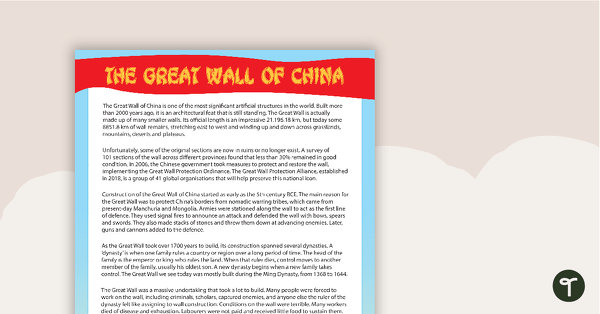
Comprehension - The Great Wall of China
A comprehension activity about The Great Wall of China.
- Plus Plan
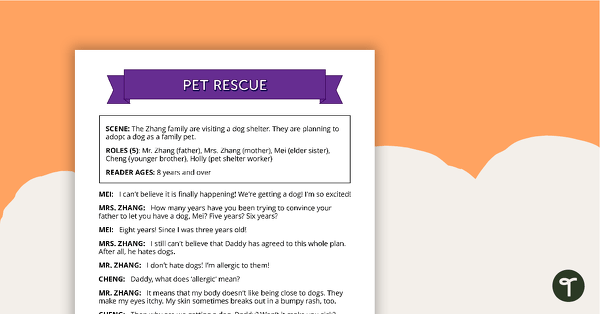
Comprehension - Pet Rescue
A fun script and set of questions to help students develop reading and comprehension strategies.
- Free Plan
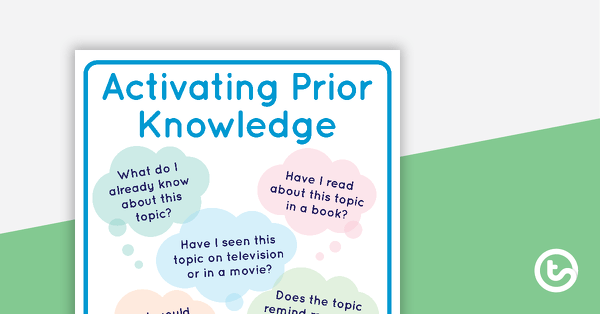
Activating Prior Knowledge - Comprehension Strategy Poster
A poster explaining how to activate prior knowledge before reading.
- Plus Plan
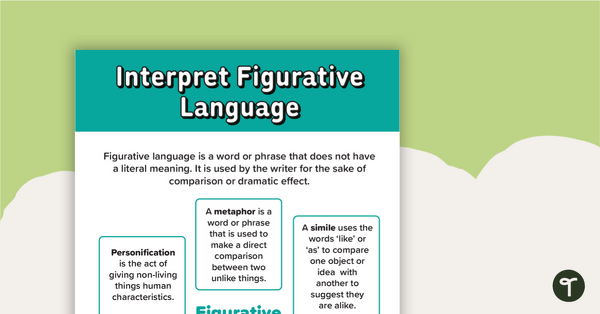
Interpret Figurative Language Poster
Provide students with a visual reminder of the types of figurative language with this classroom display poster.
- Plus Plan
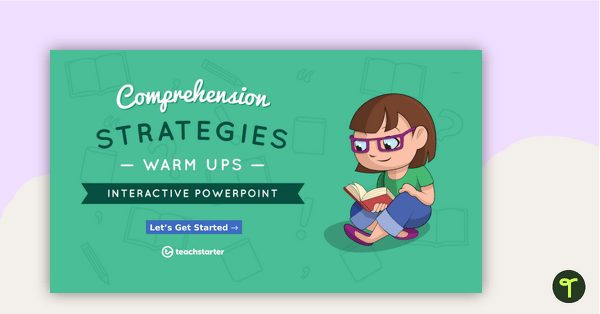
Comprehension Strategies - Interactive PowerPoint
An engaging 48 slide interactive PowerPoint to use in the classroom when developing comprehension strategies.
- Plus Plan
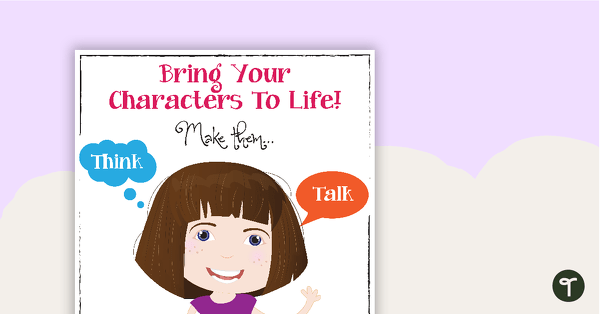
Bring Your Characters To Life Poster
A poster to remind your students to add detail and description to their writing to bring their characters to life.
- Plus Plan
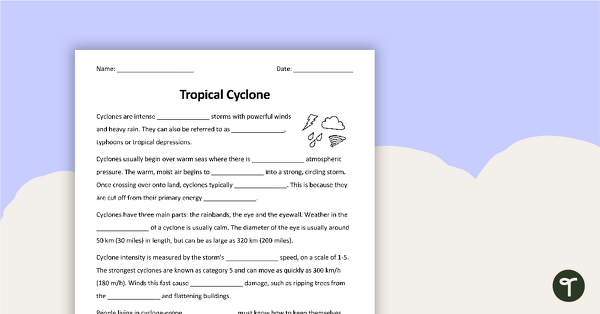
Tropical Cyclone Cloze Worksheet
A cloze worksheet about tropical cyclones.
- Plus Plan
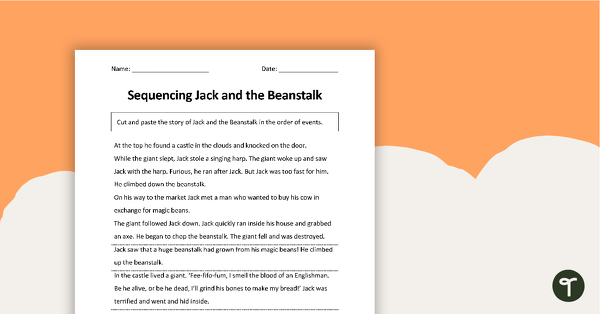
Understanding Sequence - Jack and the Beanstalk
A worksheet to use when teaching students how to understand sequence when reading.
- Plus Plan
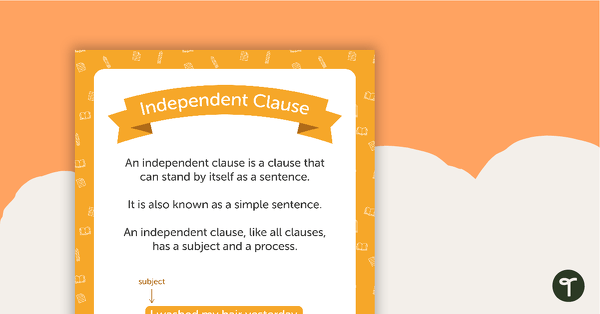
Types of Clauses Posters
A set of five posters examining the structure of independent and dependent clauses.
- Plus Plan
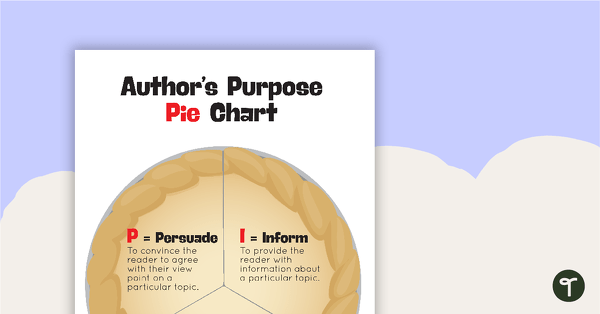
Author's Purpose Pie
A pie that shows the three main reasons an author writes a piece of text.
- Plus Plan
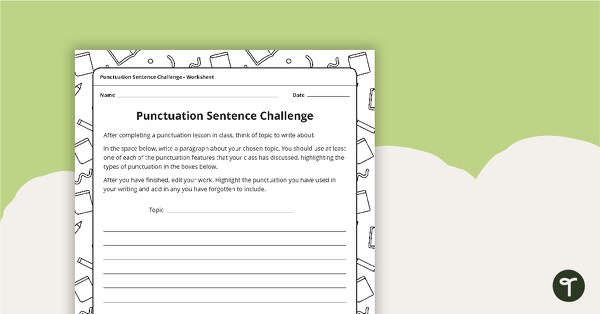
Punctuation Sentence Challenge Worksheet
A teaching resource to help consolidate the students’ knowledge of punctuation.
- Plus Plan
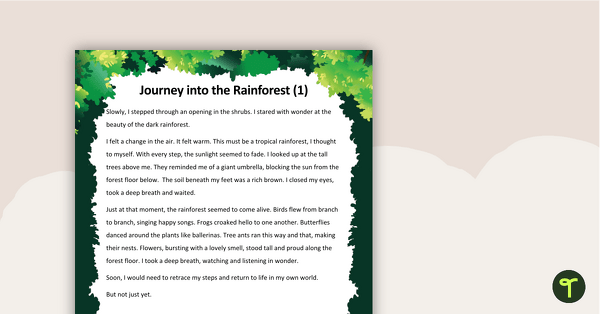
Reading Fluency Assessment Tool - Rainforests
A user-friendly tool for teachers to assess their students' reading fluency and accuracy, with texts based on a rainforest theme.
- Plus Plan
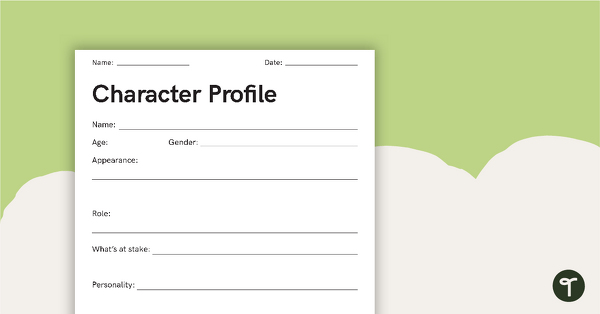
Detailed Character Profile Worksheet
A worksheet for students to use when building a character for a story.
- Free Plan
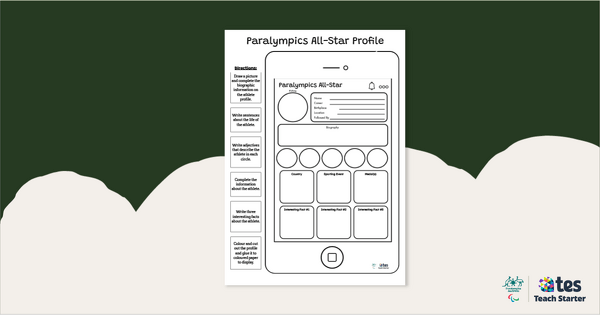
Paralympic All-Stars Social Media Profile Template
Engage your students in learning about All-Star Paralympic athletes with a social media-inspired athlete profile template.
- Free Plan
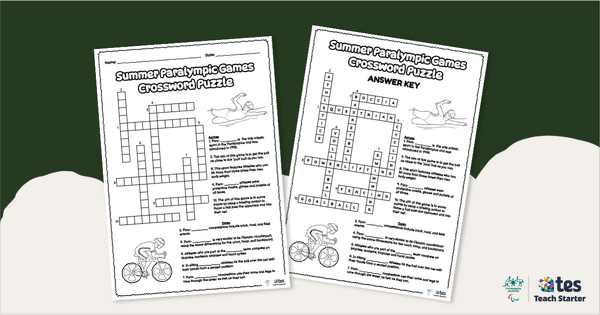
Summer Paralympic Games Crossword Puzzle
Boost vocabulary skills with a printable Paralympic Sport Crossword Puzzle.
- Plus Plan
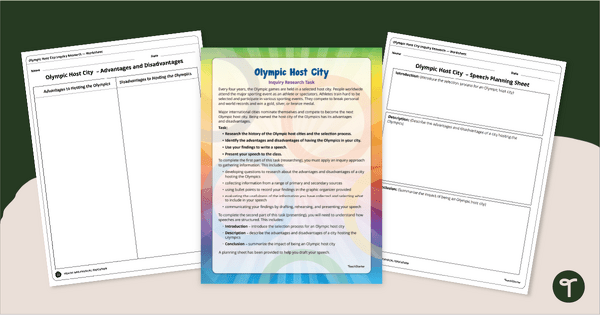
Olympic Host City Project - Speech Writing Task
Explore the advantages and disadvantages of being the host city for the Olympics in this 3-page inquiry and speech-writing task.
- Plus Plan
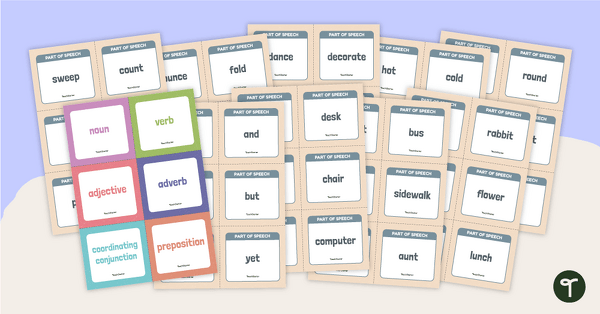
Parts of Speech Word Cards Sorting Activity
Engage your students with this parts of speech group activity where they sort 112 word cards into categories (nouns, verbs, adjectives, adverbs, coordinating conjunctions or prepositions).
- Plus Plan
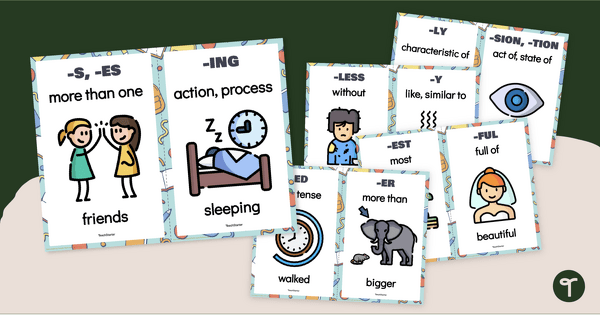
Suffix Mini Anchor Charts
Give your students a visual reminder of the meanings of 28 affixes with a printable set of miniature suffix anchor charts.
- Plus Plan
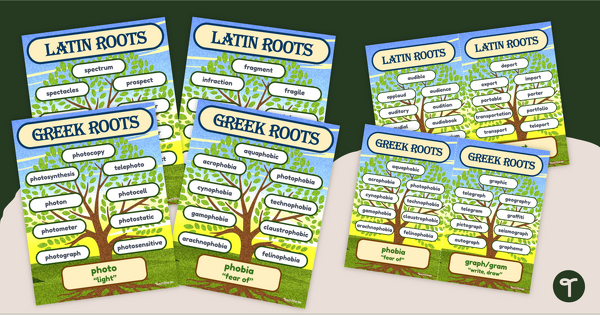
Greek and Latin Roots - Word Tree Anchor Charts
Encourage vocabulary development with 24 Greek and Latin Root Tree anchor charts.
- Plus Plan
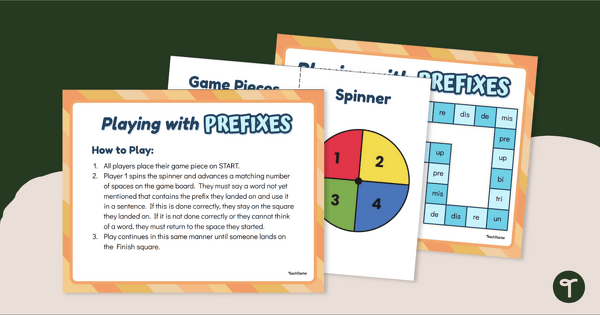
Printable Vocabulary Games - Playing with Prefixes
Practise building and using words with common prefixes with a fun prefix vocabulary game.
- Plus Plan
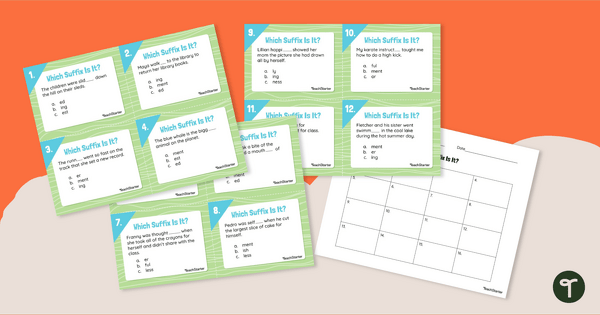
Which Suffix is it? - Task Cards
Practise using suffixes in sentences with a set of printable suffix task cards.
- Free Plan
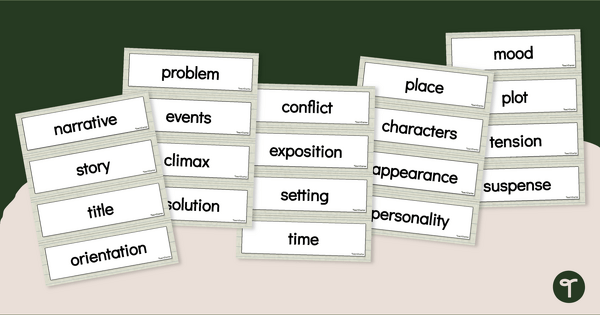
Narrative Writing Word Wall
Review terms related to narrative texts and narrative writing with a set of 33 narrative vocabulary word wall cards.
- Plus Plan
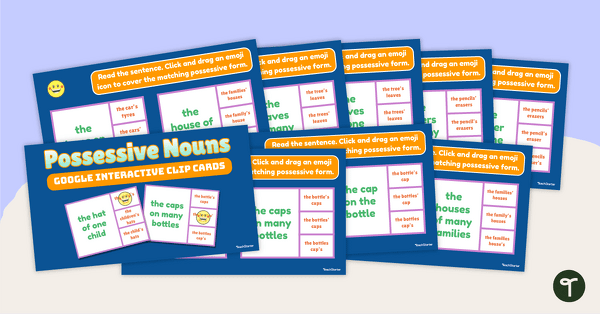
Possessive Nouns - Interactive Peg Cards
Provide digital possessive noun practice activities for your learners with a Google Slides interactive activity.
- Plus Plan
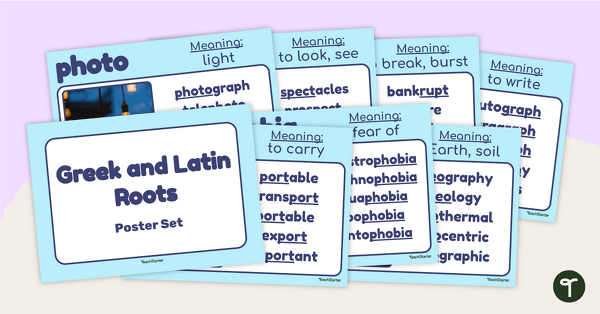
Greek/Latin Roots Posters
Encourage vocabulary development with a set of 23 Greek and Latin roots posters.
- Plus Plan
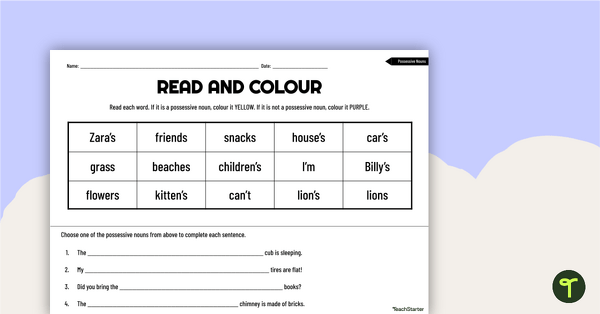
Read and Colour Worksheet – Possessive Nouns
Practise identifying possessive nouns with this worksheet.
- Plus Plan
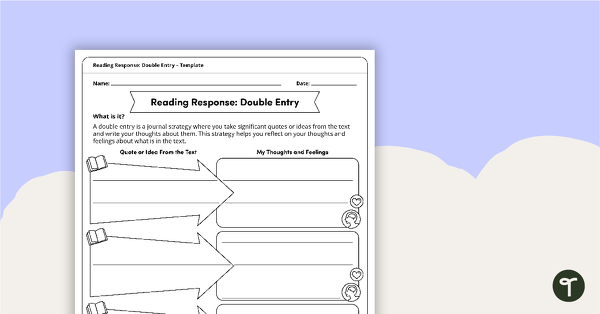
Reading Response Double Entry – Template
A comprehension template for students to practise writing double entries.
- Plus Plan
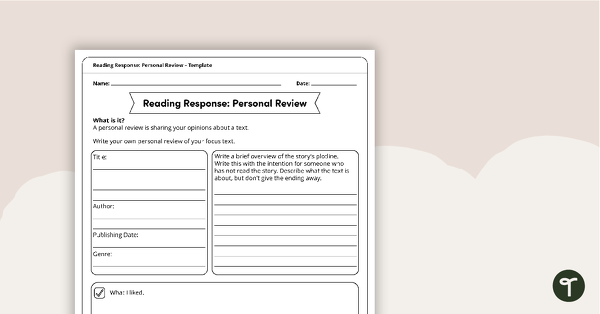
Reading Response Personal Review – Template
A comprehension template for students to write a text review about what they have been reading.
- Plus Plan
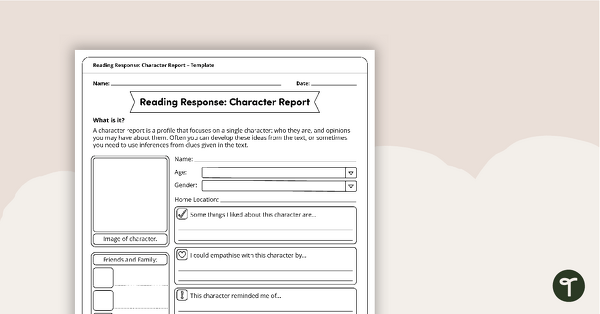
Reading Response Character Report – Template
A comprehension template for students to write a character report about the text they have been reading.
- Plus Plan
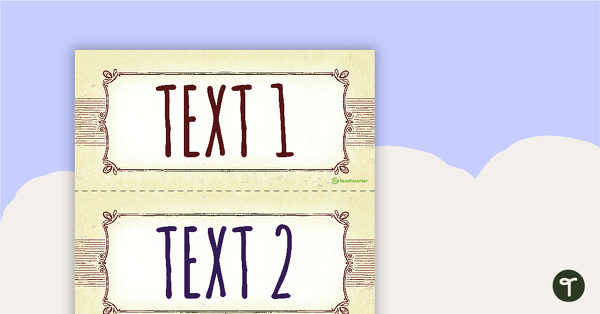
Biography Writing Bump It Up Wall
A visual display for your classroom to help students ‘bump up’ their biography writing.
- Plus Plan
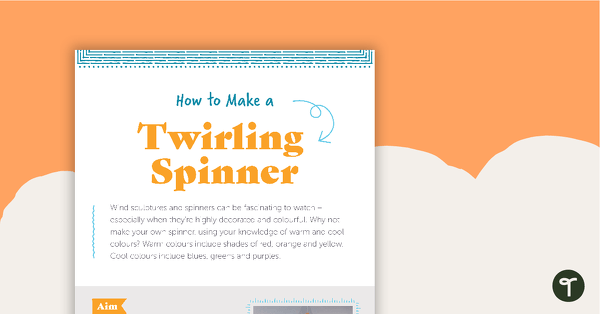
How to Make a Twirling Spinner Worksheet
A comprehension worksheet for a magazine procedure article about making a twirling spinner.
- Plus Plan
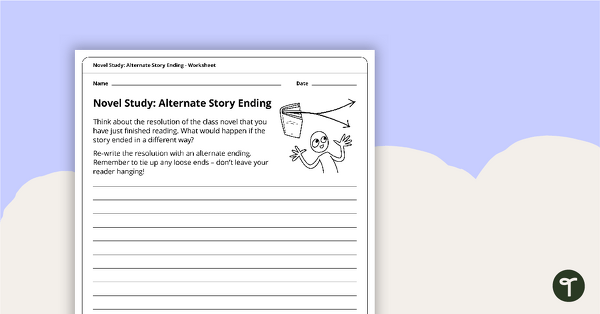
Novel Study - Alternate Story Ending Worksheet
A worksheet which encourages students to write an alternate ending to a shared class story.
- Plus Plan
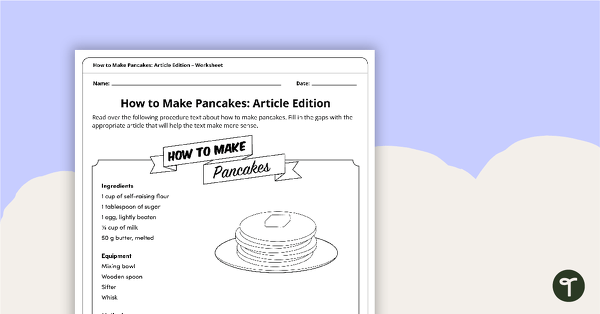
How to Make Pancakes: Article Edition - Worksheet
A procedure text for students to read about how to make pancakes with the articles removed for students to fill in.